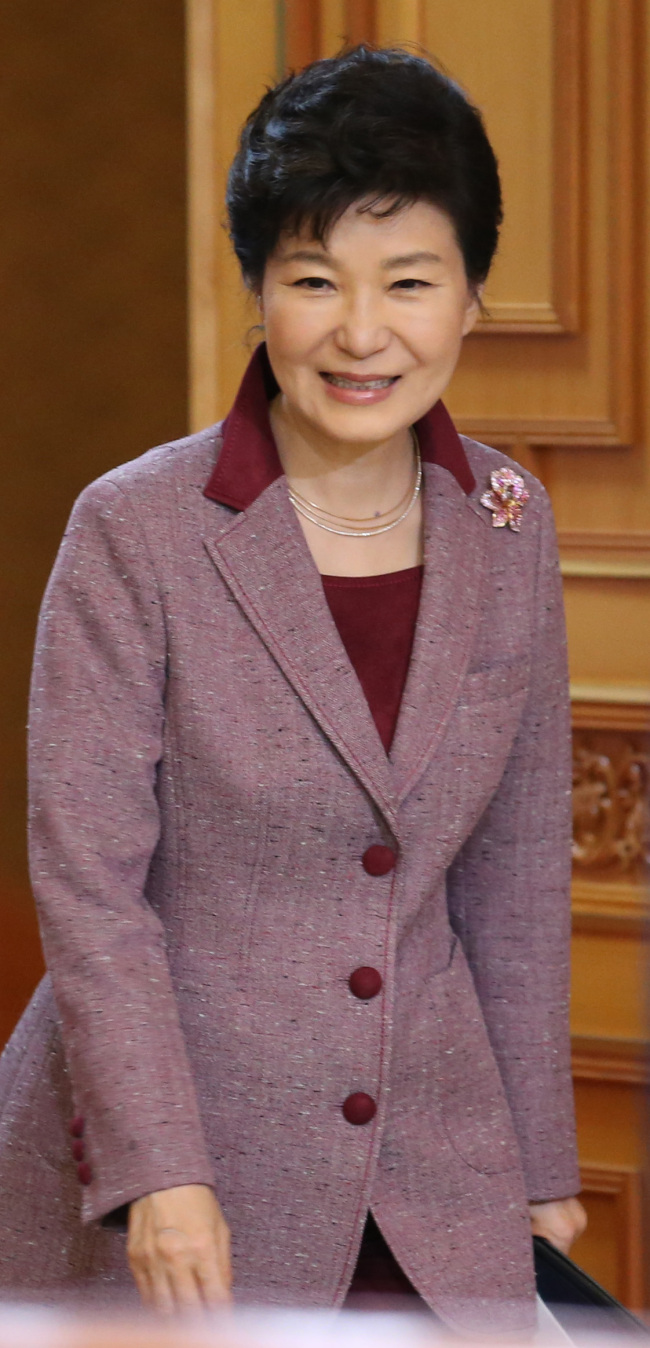
South Korean President Park Geun-hye said Tuesday that history lessons should not “lead to division within people over ideological standoff,” in a rebuttal to the opposition’s criticism of the government’s decision to revive state history textbooks for secondary education.
“The political circles should not cause rifts within the public opinion with unnecessary dispute, and should instead normalize the history lessons so that it will be a catalyst in establishing the people’s unity,” she said during a secretarial meeting at the presidential office Cheong Wa Dae. “It is our imperative to ensure that the future generation can acquire a correct view of history and value.”
The Education Ministry’s recent announcement to monopolize history textbook publication for middle and high school has sparked furious backlash from the main opposition, who accused the president of attempting to hide flaws of controversial political figures like her father, former President Park Chung-hee, and the founding President Syngman Rhee.
The government had claimed that current privately published textbooks were too biased in favor of the leftists, and requires government intervention.
Park emphasized the importance of an accurate view of history, particularly amid the rapid shift in the power dynamics of Northeast Asia and the surrounding countries. “It is important for our children to grow with pride (about Korea) through correct history lessons. … I urge (officials) to reflect opinions from various fields so that correct history textbooks can be authored.”
The comments, made just hours before her visit to the U.S., marks her first public comments on the contentious issue of state history textbooks. It was widely seen as an attempt to defend and push ahead with her government’s decision that had sparked an uproar in both education and political circles.
Prime Minister Hwang Kyo-ahn defended the president’s resolve, saying that the government should be in charge of “balanced responsible history education.”
He also said that in a democratic society like Korea, some ideas can be restrained by law, during Tuesday’s interpellation session at the National Assembly.
When asked if the government can be justified in forcing a single idea upon people, Hwang said that the freedom of ideas is not about accepting all opinions and that ideas that are against democracy itself cannot be tolerated by the country.
By Yoon Min-sik
(minsikyoon@heraldcorp.com)



